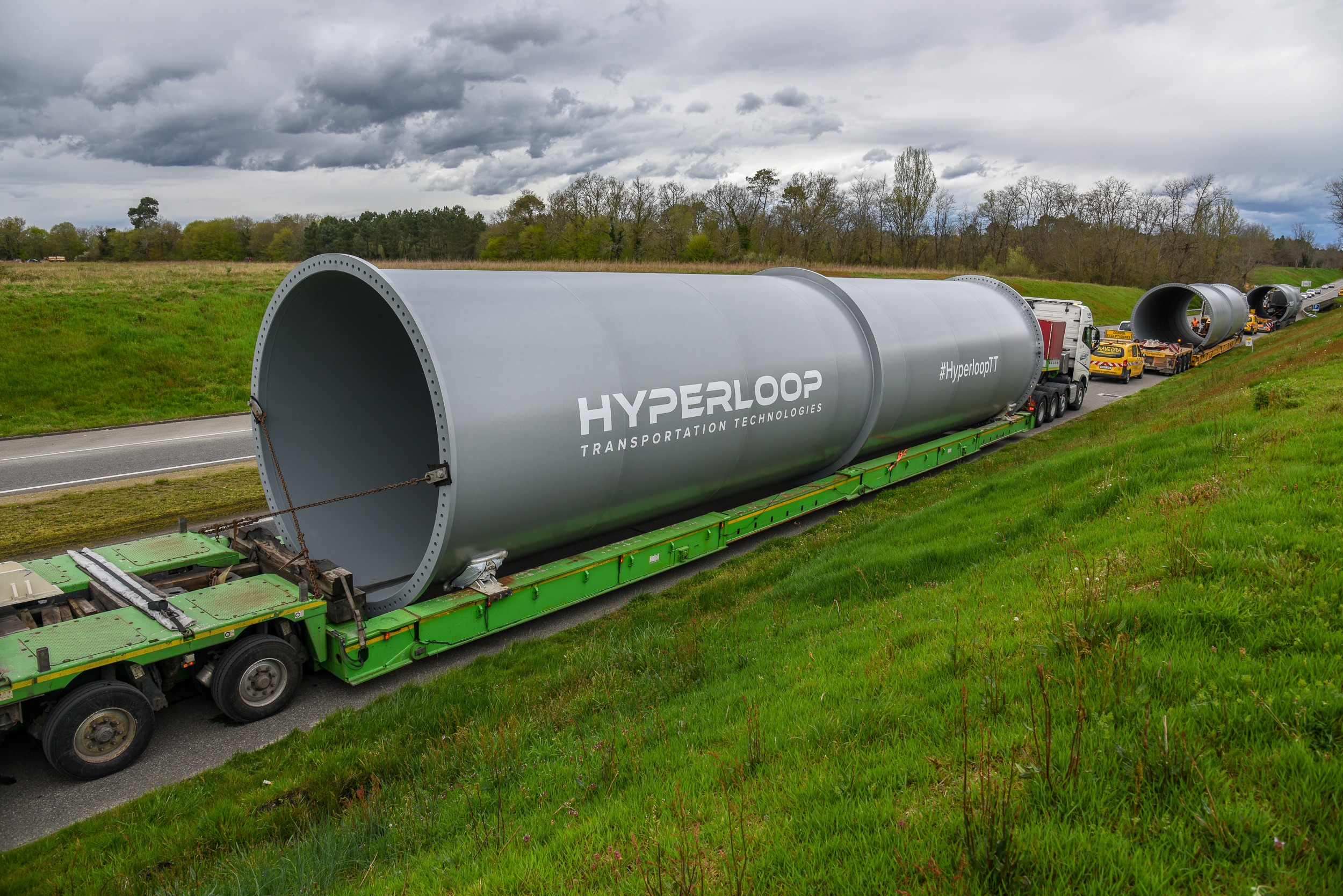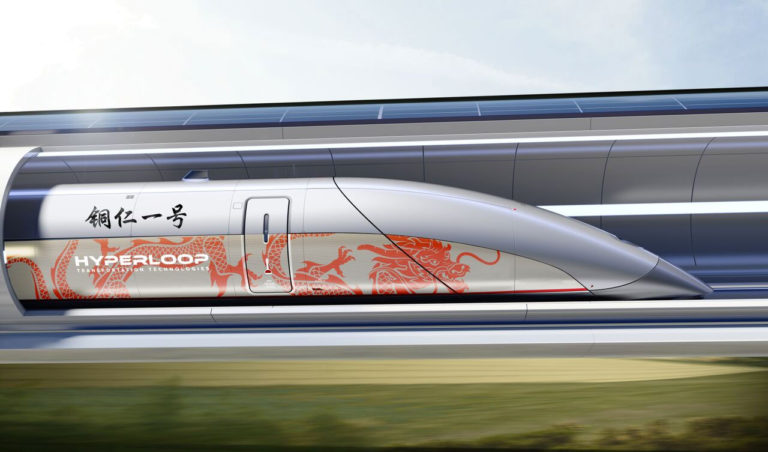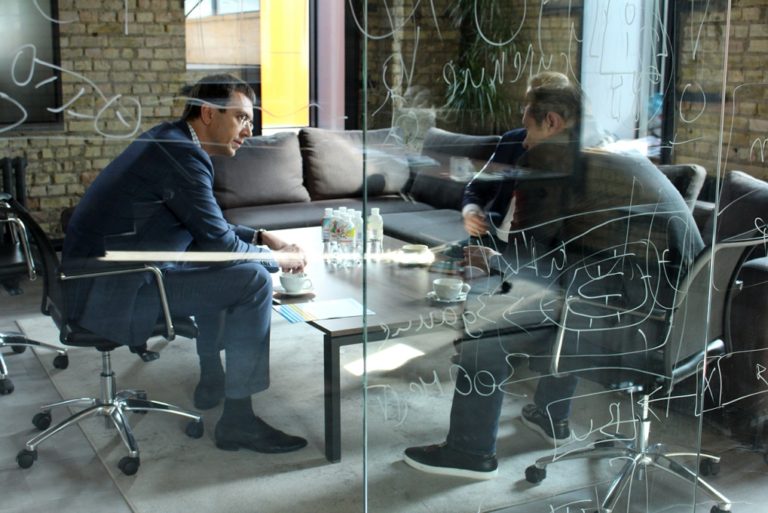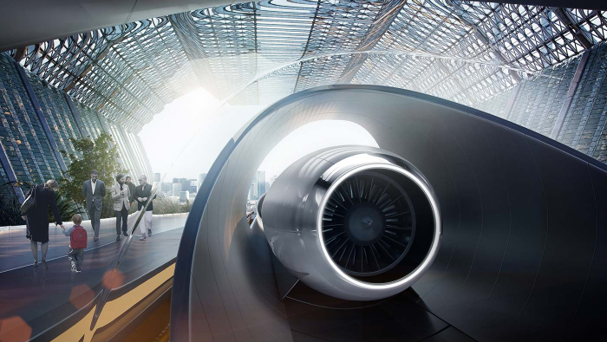We haven’t heard much from Hyperloop Transportation Technologies since last year when the California-based company released a handful of images and a video to prove that it is building what it says is the world’s first full-scale, passenger-ready hyperloop. Today, the company has broken its silence with the announcement that it’s begun construction of a kilometer-long test track near its R&D center in France.
HyperloopTT says its test track will be built in two phases: a closed 320-meter system that will be operational this year, and a 1-kilometer-long full-scale system, elevated by pylons at a height of 5.8 meters to be completed in 2019. A full-scale passenger capsule, currently under construction at the company’s facility in Spain, is scheduled for delivery this summer.
That would make it the world’s third hyperloop test track to date, and the first in Europe. The other two are in the US: Virgin Hyperloop One’s test track is located in the desert north of Las Vegas, while Elon Musk’s track is sited outside SpaceX’s headquarters in Hawthorne, California.
The video and images of HyperloopTT’s track under construction is the first solid evidence that the company is actually pursuing its goal of building a full-scale, passenger-ready hyperloop capable of sending capsules of people or cargo flying through a nearly airless tube at a hypothetical speed of 760 mph. Previously, all we’ve seen from the company is a few random images and some dubious-sounding announcements.
By contrast, its crosstown rival, Virgin Hyperloop One has conducted three demonstrations of its not-to-scale system in the desert outside of Las Vegas, most recently hitting a record speed of 240 mph (387 km/h). The company has deals with governments in Dubai and Saudi Arabia as well as a plethora of leadership churn. And SpaceX has held several versions of its design and engineering competition, with student-led teams also achieving 200 mph speeds.
HyperloopTT is less a traditional business than an elaborate crowdfunding campaign. The company boasts that it is a solely volunteer and crowdsourced venture, with talent from NASA, Boeing, Tesla, and SpaceX working among its 800-plus volunteers. HyperloopTT has run into bureaucratic hurdles. Its test track in California was delayed after it was revealed the company failed to complete the state’s environmental review process. With the company shifting most of its focus to Europe, it’s unclear whether HTT’s California property is still in the mix.



